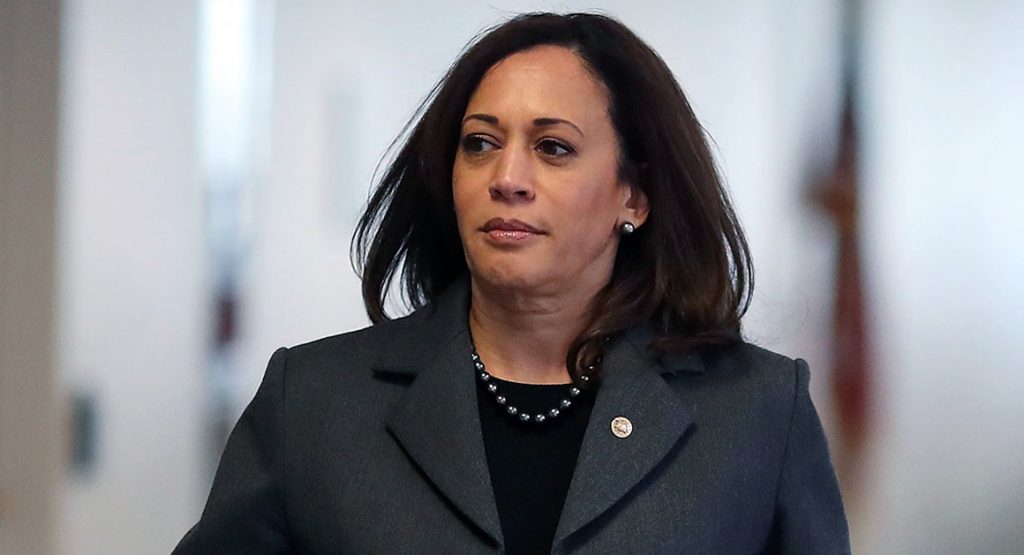Washington: Kamala Harris’ plunge in the US presidential race has thrilled the Indian-American community which considers the first Indian-origin Senator’s ‘groundbreaking’ announcement a ‘proud moment’ and a reflection that Indian-Americans have finally arrived.
Harris, 54, officially launched her campaign Monday for the US presidential election in 2020 to take on President Donald Trump and said she was ‘honoured’ to announce her bid on a day when Americans celebrated Martin Luther King (Jr) who sought inspiration from Mahatma Gandhi.
Harris a rising party star and vocal critic of President Trump, is quite often described as the female Barack Obama in the Democratic party. She is the fourth Democrat to join the battle for the party’s nomination in next year’s election.
While it’s too early to predict the results of the grilling presidential primary that would conclude with the Democratic National Convention in July 2020, the Indian-American community leaders said Harris – who is of mixed parental heritage from India and the Caribbean – has a fair and clear shot at the White House.
“It’s a proud moment for the Indian-American community to see one of our own announce to run for the President,” eminent philanthropist and venture capitalist MR Rangaswami, founder of ‘Indiaspora’, told this agency.
‘Indian-American Impact Fund’, a political action committee that supports Indian-Americans candidates, said it was ‘thrilled’ by Senator Harris’ ‘groundbreaking’ announcement.
The community members cautioned that the politicians cannot take the Indian-Americans for granted and need to earn the support of the community.
“Any politician shouldn’t look at the Indian American community as a monolith at all. They cannot take us for granted because we also have a Hindu American running for President, Tulsi Gabbard and she has been also reaching out and getting supporters,” Silicon Valley-based Rangaswami said.
Gabbard, the first Hindu elected to the House of Representatives has also announced her bid for the 2020 presidential election.
“Nobody can take us for granted and they have to come talk to us, earn our vote and support. The community is just ready to go behind any one person and, and also it shows that the community has gained a lot more influence…They have to come to us, talk to us, earn our vote and earn our support,” added Rangaswami.
Harris whose mother Shyamala Gopalan migrated from Tamil Nadu to the US as a young student for higher studies, has maintained a distance from the Indian-American community. It is only in the last six months, that she has started attending some of the Indian-American events.
“Is she a viable candidate? The answer’s yes,” Virginia-based Shekar Narasimhan, chairman and founder of the ‘AAPI Victory Fund’ said. “She has at least the same credentials as (former president) Barack Obama did.”
However, it’s too early to say on the Democratic party’s presidential race, the winner of which in all probability would have to face incumbent Donald Trump, he observed.
In at least four of the early primary States – Nevada, North Carolina, California and Virginia – Harris would need the support of Asian Americans where they are in significant numbers, Narasimhan pointed out.
But it simply doesn’t matter to others. “It’s amazing! Isn’t it that we have a viable candidate, who is at least half Indian-American running for President of the United States? I don’t know if anyone of us thought that this was going to happen anytime soon,” said Sam Jindal a long-time Democratic political activist from Virginia.
Eminent Indian-American Frank Islam, who was closely associated with the Clinton campaign in 2016, said Harris will be a formidable challenger. “But she needs to define herself and she needs to differentiate herself from other challengers in crowded democratic presidential field,” Islam pointed out.
“She has personal story – a child of mixed race that will resonate well with the Americans. She is not well known but her work as a prosecutor will demonstrate her toughness but her record will be under scrutiny,” Islam added.
Indian-Americans constitute one per cent of the American population and are one of the fastest growing minorities in the country.
PTI
